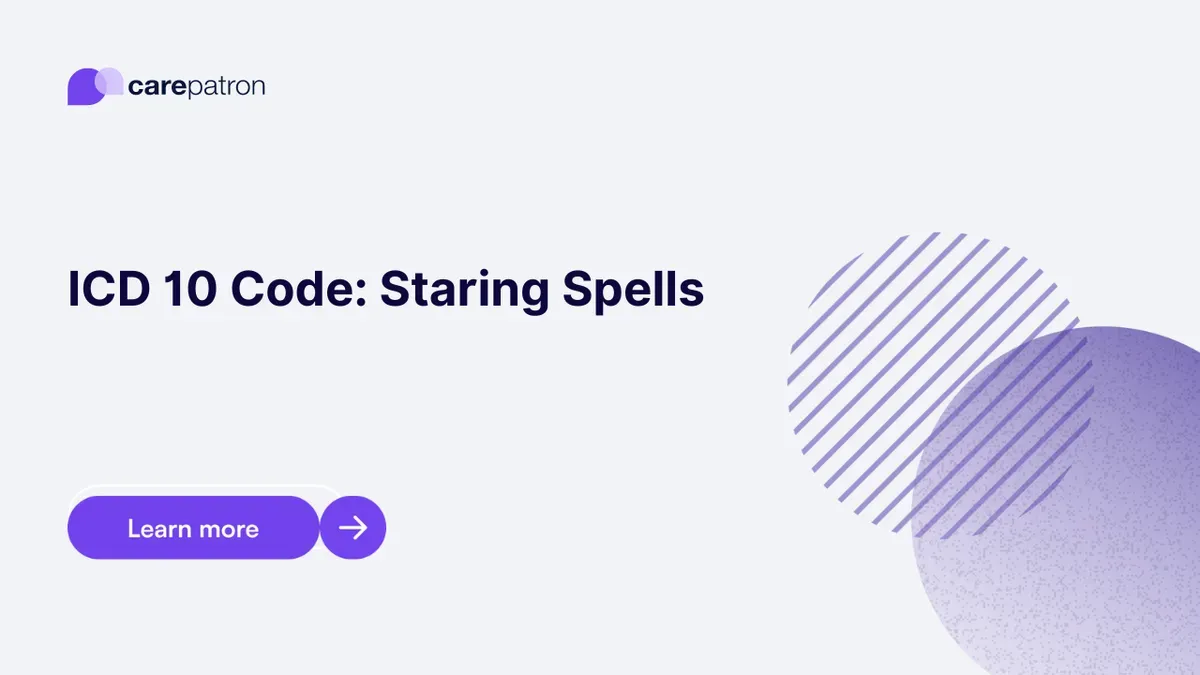
Staring Spells ICD-10-CM Codes
Discover ICD-10 codes for Staring Spells. Proper coding is essential for billing and managing conditions like absence seizures.
Use Code
Commonly asked questions
Use a Staring Spells ICD code when diagnosing a patient with absence or petit mal seizures, characterized by sudden, brief episodes of altered consciousness and a blank stare.
Yes, Staring Spells diagnoses are billable. Proper documentation and coding are crucial for insurance claims and patient management.
Treatment options for Staring Spells Diagnosis Codes typically include antiepileptic medications to control seizures. In some cases, lifestyle modifications or surgical interventions may be considered.
EHR and practice management software
Get started for free
*No credit card required
Free
$0/usd
Unlimited clients
Telehealth
1GB of storage
Client portal text
Automated billing and online payments
